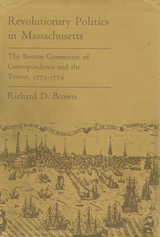
It is commonly agreed that the history of France at the end of the eighteenth century was influenced powerfully, at times decisively, by collective interests and group actions. Yet, as Philip Dawson shows, this consensus has been the foundation of endless scholarly argument over the purposes of group actions and their effects on economic, political, and intellectual life, the accuracy of facts reported, the validity of different methods of analysis, and the significance of the whole topic for previous and subsequent human experience. In probing these questions, this monograph contributes research findings to the historical controversy over the political motives and conduct of the upper bourgeoisie during the French Revolution.
Chosen for study is a well-defined occupational group near the pinnacle of the bourgeoisie, the 2700 judicial officeholders in the bailliages and sénéchaussées--royal courts from which appeals were taken to the parlements. These lower-court magistrates were generally well-to-do and esteemed personages in the provincial bourgeoisie, who could potentially be drawn to either side in a political struggle between nobility and bourgeoisie. They constituted more than 20 percent of the bourgeois representation in the Estates General of 1789. Revolutionary legislation abolished their offices, but many of them remained active in politics even under the revolutionary republic.
Dawson makes use of a variety of manuscript materials pertinent to the magistrates as he treats their activities as members of corporate groups before 1790 and follows many of them as individuals through the revolutionary years to 1795. In part, the book is based on biographical data relating to 230 magistrates--all who were in office in the provinces of Burgundy and Poitou at the outbreak of the revolution.
By the end of 1789, the author concludes, most of the magistrates came to accept revolutionary change because alternative courses of action had been made more unacceptable to them. It was their support that helped to make possible the revolutionary process itself. "They were not the leaders of the revolutionary bourgeoisie. Before 1789, they had been in the highest rank of the bourgeoisie and they remained a notable part of it, but most of them had come to support revolution hesitantly, cautiously, with moderation and many a backward glance."

More than a century and a half ago, John Adams urged scholars investigate the communications of the Boston Committee of Correspondence, the most radical and important of the revolutionary committees of correspondence. Such a study, Adams suggested, would reveal the underlying impetus of the revolutionary movement. Now, for the first time, Richard D. Brown has made an exhaustive and systematic analysis of the committee that set a pattern for America and for the world by keeping alive the revolutionary spirit at a time when the issues were cloudy and public interest was dormant.
The Boston committee, organized to arouse the people of Massachusetts and to inform them of their rights, initiated the use of local committees of correspondence and went on to become a major revolutionary institution which helped bring about fundamental changes in Massachusetts politics. Mr. Brown's book focuses on the years 1772 to 1774, when the inhabitants of Massachusetts moved from quiet accommodation with the British imperial system to massive rebellion against it. His investigations of the records of the Boston committee and of voluminous town records never before studied have resulted in a revision of previous interpretations regarding the interaction between leaders in Boston and the people in the towns.
The author's findings indicate that the Boston committee did not control Massachusetts political action, manipulating the political behavior of the towns, as earlier theorists have suggested. Though Boston was a leader, the towns generally acted independently, and government by consent developed effectively on the local level. The letters which passed between the capital and the countryside reveal an expanding political consciousness and an ever-increasing political sophistication at the grass-roots level. They articulate an essentially radical view of politics based on popular sovereignty.
As an account of the process of political integration among a colonial people engaged in an independence movement, this book will appeal not only to historians but also to political scientists concerned with the emerging nations of the twentieth century.
READERS
Browse our collection.
PUBLISHERS
See BiblioVault's publisher services.
STUDENT SERVICES
Files for college accessibility offices.
UChicago Accessibility Resources
home | accessibility | search | about | contact us
BiblioVault ® 2001 - 2024
The University of Chicago Press









